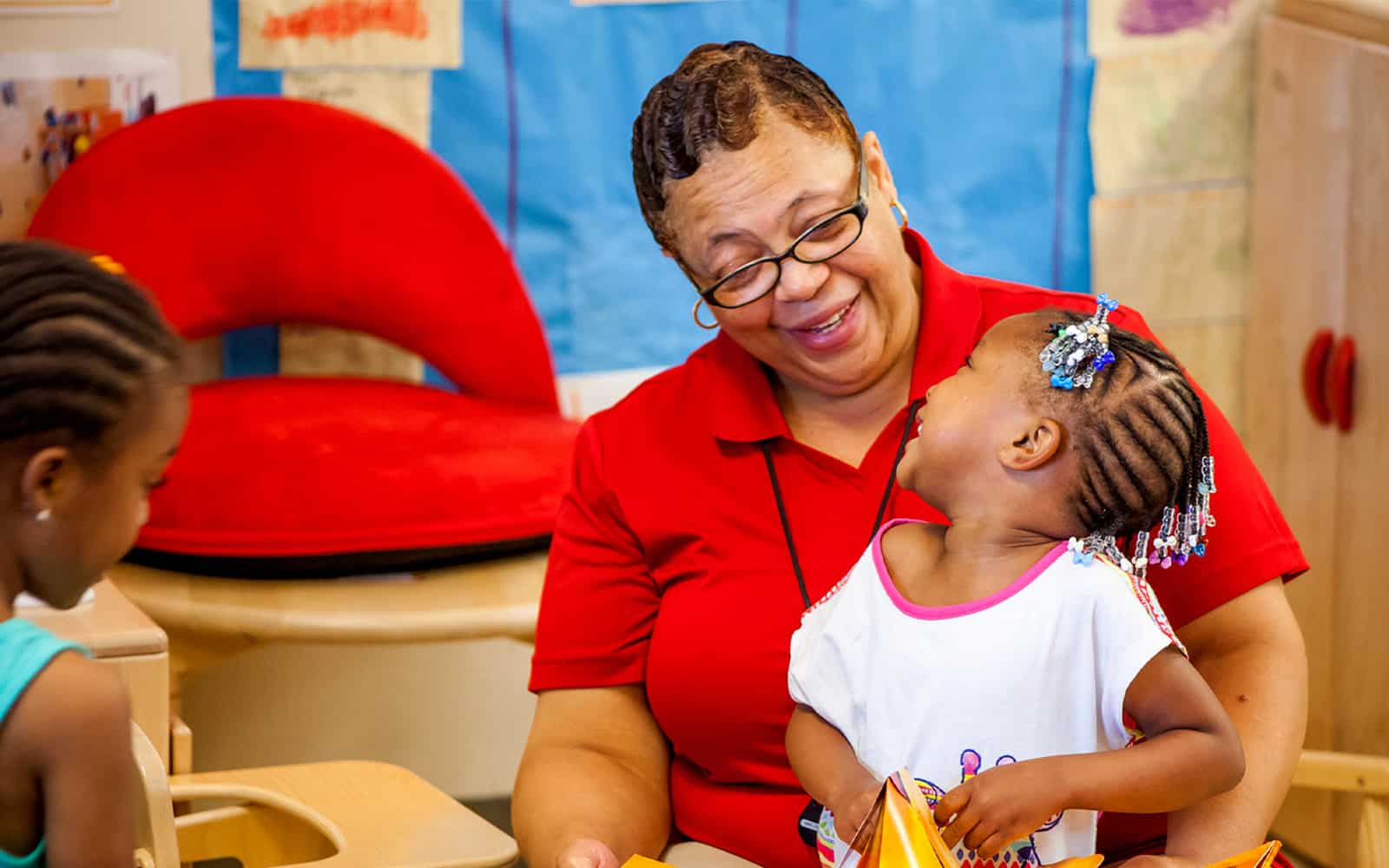A year ago, the pandemic was in full swing and most child care programs in the state of Illinois and across the country had temporarily closed in an effort to slow the spread of the COVID-19 virus. Like many parents, I was adjusting to working from home while simultaneously occupying a 3-year-old who was used to spending his days in a structured and stimulating learning environment. In those early days, my home was chaos and I found new respect, admiration and appreciation for the essential work my son’s teachers at his child care center do.
As time went on, child care center reopened and my son returned, but it looked much different than before. His class was smaller, everyone wore masks, and upon entering the center, his teachers took his temperature and screened for symptoms of COVID-19. And, children from different classrooms could no longer come together at the beginning and end of the day. We are fortunate that during these past ten months there has not been a single case of COVID-19 in my son’s classroom, and that the few cases in other classrooms did not spread to others or require total closure of the center.
It’s more than just luck that has kept my son and his classmates safe—it’s the incredible commitment and hard work of the center’s staff. Every day, for 11+ hours a day, the staff is fastidiously masking, cleaning and doing what it takes to ensure that the risk of transmission remains low. They do it all with grace, calmness and the trademark bubbliness of early childhood educators. I was initially worried about how much my son would learn and how comfortable he’d be with all of these new protocols, but I quickly realized that I didn’t need to worry. He was thriving.
Given my work, I know that child care is an incredibly low-margin business and teacher compensation is low, but witnessing the heroics performed by my child care provider cemented just how unjustly under-resourced the system is. According to the recent Illinois Salary and Staffing Survey of Licensed Child Care Facilities, the median hourly wage for a full-time early childhood teacher is just $13 per hour and only about half of facilities are able to provide health insurance coverage to staff.
Extended closures, decreased enrollment and increased costs associated with the ongoing pandemic have threatened the very survival of the child care sector. We don’t yet know the full extent of the fallout, but as we emerge from the pandemic, many child care programs will be lost from the system—child care providers will lose their livelihood and communities will be left with inadequate supply of care programs.
The good news for Illinois is that our state has already taken action with policy changes and dedicated grants for child care programs, which is detailed in a previous post. With the recent passage of the American Rescue Plan, billions of federal dollars will soon be distributed to states, so that we can continue and build on these efforts. In addition to continuing critical supports like the Child Care Restoration Grants, we must also invest in our entire early learning and care workforce – increasing compensation should be our top priority.
Now more than ever, we must honor the significant contributions and sacrifices the early care and learning workforce makes to keep our communities going. One way to support increased compensation for early childhood professionals is by telling legislators to invest more in early care and learning programs.
In closing, I hope you will join me in thanking all of the early care and learning professionals who have supported families and communities throughout the pandemic, either through personal outreach or by posting to social media using these templates. From the Early Intervention providers, home visitors and doulas who pivoted to virtual services, to child care providers who ensured safety and stability for children, and to the Head Start and preschool teachers who kept children learning whether at home or at school—you have all gone above and beyond to support families.
Thank you! Ms. Latantha, Ms. Lillian, Ms. Janet, and Ms. Genny—because of you, my son is learning, growing and thriving, and I’ve been able to continue working. Our family will be forever grateful to you and I hope and will work for a future where you and every other early childhood professional will finally be compensated as you deserve to be.
This blog post is a component of Illinois Childhood Advocacy Week, a week of full of opportunities for providers, parents and caregivers to share with their legislators that early education is essential—now more than ever as we rebuild and recover from the COVID-19 pandemic. Learn more.


